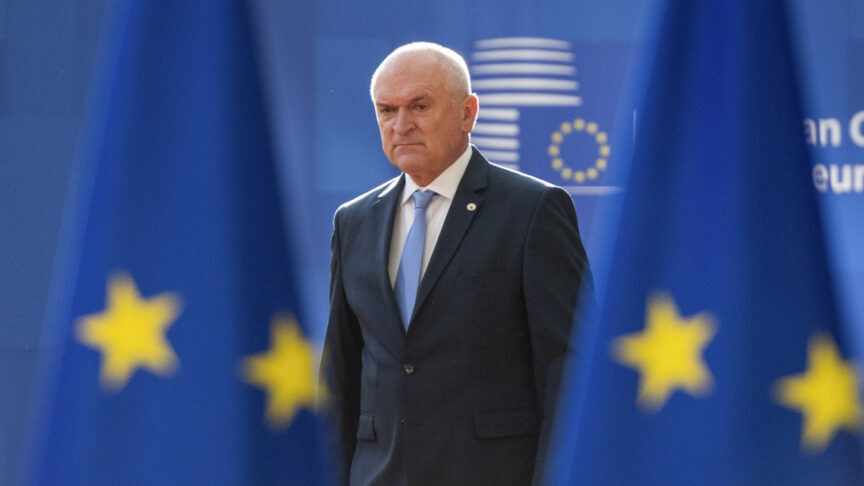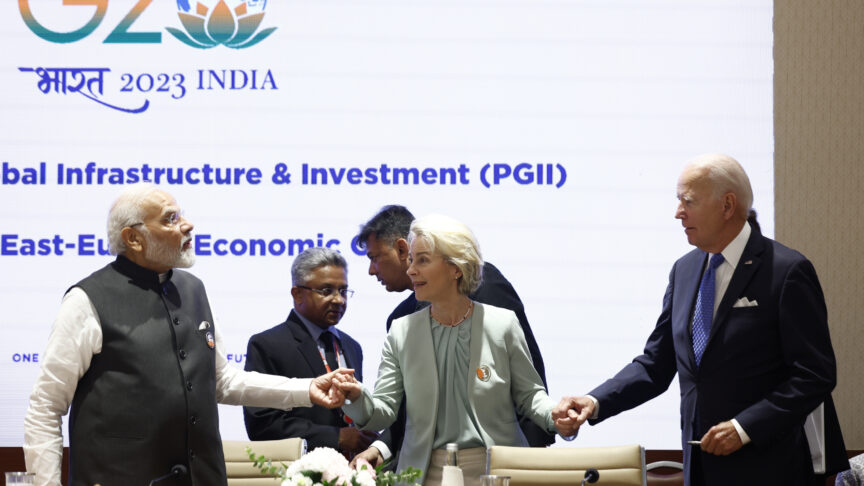Iran: A European issue
Iran’s political fate carries great implications for Europeans, and the EU’s traditional negotiation methods might not be enough
This piece was first published in ABC on 19 June 2009.
Observers clearly misunderstood the mood of Iranian
voters, as they anticipated a mellowing of Iran’s radical politics with an
Ahmadinejad defeat and the ascent of his moderate rival Mussavi. Whether the
guardians of the revolution cheated on the election results a lot, or only in a
limited way, it remains that advocates of democracy and moderation have
difficulty getting elected in Iran.
All candidates were in the tow of the Mollahs in any case, with Ali Khamenei
exercising tutelage on the various political currents. We keep mistaking Iran’s politics
for a democratic struggle when what we really have is a factional infighting
among the Revolution’s children, who sometimes use the ballot box, sometimes
not. The political system remains under top down lock up. Iran may have more to do with China’s governance than with
European democracy.
A
triumphant but defiant Ahmadinejad, wanting to shake off accusations of foul
play, could go further along the road of authoritarian and anti-Western action.
This, just as the new Obama administration has made unmistakable gestures of
opening to Iran
– for the first time in a generation. We will soon test the axiom whether it
was the West’s characterisation of others as enemies that became a
self-fulfilling prophecy, or whether we really have some of these enemies, even
when we extend our hand.
The first
test of this will come with the nuclear issue, and that is a deep concern for Europe. There is an unfortunate coincidence: North Korea has
just tested for the second time a nuclear weapon in open defiance of the United
Nations. And because the Western appetite for conflict is spent, North Korea is
getting away with it. On the day after this test, President Ahmadinejad
announced his country would no more enter talks on his nation’s own nuclear
program. On the day after his victory was announced, he proclaimed that the
whole matter was “an issue of the past”. Evidently, Ahmadinejad does not think
nuclear weapons are obsolete. He is encouraged by the North Korean case to
think there is no room for an international show of strength, and no reason to
expect the situation will be different for Iran,
a country with abundant resources and much more regional nuisance capacity than
North Korea.
He may now be racing to the finishing line.
He could be
miscalculating. An American or Israeli attack would have devastating
consequences, however. Given the present destabilisation of swaths of the
Islamic world – from South Asia to sub-Saharan Africa – a deflagration in Iran would send
shockwaves everywhere. And on the other hand, if he turns out to be
right, say if the United Nations and the West let him run across that finishing
line, perhaps maintaining for sometime an ambiguous posture of neither
confirmation nor denial, the world will have changed, and in an area that
remains close to Europe’s civilisational
cradle. We will have a nuclear balance in the Middle East which will embolden
the advocates of more unconventional conflict with Israel. We will begin to see
replicas of this move to nuclear acquisition: countries from Saudi Arabia to Egypt that will seek their own
protection. An “extended deterrence”, or a nuclear guarantee by the United States (who have just given it to South Korea)
cannot be valid for half of the world’s nation-states.
Europe has
believed in engaging Iran
diplomatically, and in the efficiency of relatively limited sanctions, to
induce Iran’s
leaders towards change. But there has to be something to talk about. If an
emboldened Iranian regime believes that it can breeze past international
opposition, the European mix of engagement with sanctions will be put to a
sever test. It will also be the first major new crisis of the Obama administration,
which has yet to solve the Iraq,
Afpak and North Korean situations.
Un asunto europeo
Disminuir tamaño del textoAumentar tamaño del texto
FRANÇOIS GODEMENT, European Council on Foreign Relations
Viernes, 19-06-09
El destino político de Irán tiene enormes implicaciones para
los europeos. Está claro que los observadores han malinterpretado las
intenciones de los votantes iraníes, puesto que anticipaban un relajamiento de
las políticas radicales con una derrota de Ahmadineyad y el ascenso de su rival
moderado, Musavi. Tanto si los guardianes de la revolución han manipulado mucho
los resultados de las elecciones como
si sólo lo han hecho de forma limitada, lo cierto es que los defensores de la
democracia y de la moderación lo tienen difícil para ser elegidos en Irán.
En cualquier caso, todos los candidatos iban a remolque de
los mulás, con Alí Jamenei ejerciendo su tutela sobre las diversas corrientes políticas.
Seguimos confundiendo la política iraní con una lucha democrática cuando lo que
realmente tenemos es un duelo interno de facciones entre los hijos de la
revolución, que unas veces usan las urnas y otras no. El sistema político sigue
encerrado en una dinámica dictatorial. Puede que Irán tenga más en común con la
forma de gobierno de China
que con la democracia europea.
Un triunfante pero desafiante Ahmadineyad, deseoso de
librarse de las acusaciones de fraude, podría ir aún más lejos en el camino del autoritarismo y las
medidas antioccidentales justo en el momento en que la nueva Administración de
Obama ha hecho gestos inconfundibles de apertura hacia Irán (por primera vez en
una generación).
Pronto se pondrá a prueba el axioma de si es la costumbre
occidental de caracterizar a los otros como
enemigos la que se convierte en una profecía autocumplida, o si realmente
tenemos algunos de estos enemigos, incluso cuando les tendemos la mano.
La primera prueba llegará con el asunto nuclear, y eso es
algo que preocupa profundamente a Europa. Se da una desafortunada coincidencia:
Corea del Norte acaba de probar por segunda vez un arma nuclear, desafiando
abiertamente a la ONU. Y debido a que Occidente ya no tiene ganas de más
conflictos, Corea del Norte se está saliendo con la suya. Al día siguiente de
esa prueba, el presidente Ahmadineyad anunció que su país no seguirá
participando en conversaciones sobre el programa nuclear iraní. Al día
siguiente de anunciarse su victoria, proclamó que todo el asunto era «un
problema del
pasado». Evidentemente, Ahmadineyad no piensa que las armas nucleares estén
obsoletas. El caso de Corea del Norte le anima a pensar que no hay cabida para
una demostración internacional de fuerza, ni motivos para esperar que la
situación sea distinta para Irán.
Europa ha confiado en la colaboración diplomática con Irán,
y en la eficacia de unas sanciones relativamente limitadas, para inducir a los
dirigentes de Irán a que cambien de postura. Pero tiene que haber algo sobre lo
que hablar. Si un envalentonado régimen iraní cree que puede burlar fácilmente
a la oposición internacional, la combinación europea de colaboración y
sanciones se verá sometida a una dura prueba. También será la primera gran
crisis nueva de la Administración de Obama, que todavía tiene que resolver la
situación en Irak, Afganistán y Pakistán, y Corea del Norte.
The European Council on Foreign Relations does not take collective positions. ECFR publications only represent the views of their individual authors.


